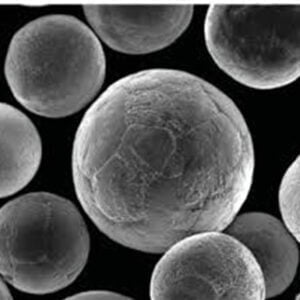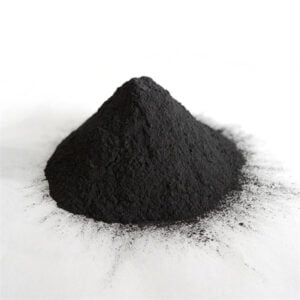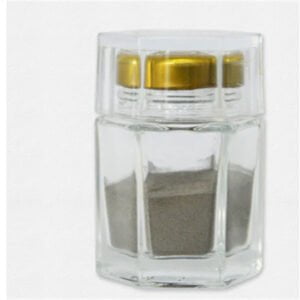Overview of Niobium
Table of Contents
Niobium might not be the most talked-about metal, but its impact on various industries is undeniable. This versatile element, represented by the symbol Nb and atomic number 41, offers remarkable properties that make it invaluable in numerous applications. Whether you’re delving into aerospace, medical technology, or electronics, niobium is a game-changer. In this comprehensive guide, we’ll explore everything you need to know about niobium, from its properties and applications to specific metal powder models, suppliers, and beyond.
Overview of Niobium
Niobium, often referred to as columbium, is a lustrous, grey transition metal renowned for its ability to withstand extreme temperatures and resist corrosion. Its discovery dates back to the early 19th century, but its true potential is being realized in modern times. Niobium is primarily sourced from the mineral pyrochlore and is commonly found in Brazil and Canada.
Key Details:
- Symbol: Nb
- Atomic Number: 41
- Density: 8.57 g/cm³
- Melting Point: 2,468°C (4,474°F)
- Boiling Point: 4,927°C (8,901°F)
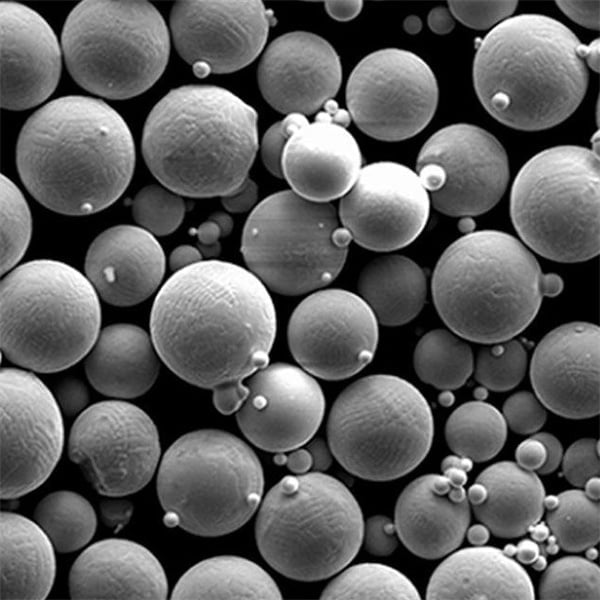
Niobium Metal Powder Models
When it comes to niobium metal powders, there are various models, each tailored to specific applications. Here are ten notable niobium powder models, along with their descriptions:
- Niobium Powder (Nb-01): High-purity niobium powder ideal for high-temperature applications.
- Niobium Hydride Powder (NbH-02): Niobium powder combined with hydrogen, used in hydrogen storage systems.
- Niobium Carbide Powder (NbC-03): Offers exceptional hardness, used in cutting tools and wear-resistant applications.
- Niobium Nitride Powder (NbN-04): Known for its superconducting properties, used in electronic applications.
- Niobium Oxide Powder (Nb₂O₅-05): Utilized in optical and electronic components.
- Niobium Aluminide Powder (NbAl₃-06): High-strength powder for aerospace applications.
- Niobium Silicide Powder (Nb₃Si-07): Used in high-temperature structural materials.
- Niobium Boride Powder (NbB-08): Offers excellent wear resistance, used in hard coatings.
- Niobium Tungsten Powder (NbW-09): A blend used for enhancing material properties in various alloys.
- Niobium Titanium Powder (NbTi-10): Utilized in superconducting magnets for MRI machines and particle accelerators.
Types, Composition, Properties, and Characteristics of Niobium Powders
| Powder Model | Composition | Properties | Characteristics |
|---|---|---|---|
| Niobium Powder (Nb-01) | Pure Nb | High melting point, corrosion-resistant | Ideal for high-temperature applications |
| Niobium Hydride (NbH-02) | Nb + H | High hydrogen storage capacity | Used in hydrogen storage systems |
| Niobium Carbide (NbC-03) | Nb + C | Exceptional hardness, wear-resistant | Ideal for cutting tools |
| Niobium Nitride (NbN-04) | Nb + N | Superconducting properties | Used in electronic applications |
| Niobium Oxide (Nb₂O₅-05) | Nb + O | High dielectric constant, optical properties | Used in electronics and optics |
| Niobium Aluminide (NbAl₃-06) | Nb + Al | High strength, high-temperature resistance | Aerospace applications |
| Niobium Silicide (Nb₃Si-07) | Nb + Si | High melting point, good oxidation resistance | High-temperature structural materials |
| Niobium Boride (NbB-08) | Nb + B | Excellent wear resistance | Used in hard coatings |
| Niobium Tungsten (NbW-09) | Nb + W | Enhanced mechanical properties | Various alloy applications |
| Niobium Titanium (NbTi-10) | Nb + Ti | Superconducting properties | Used in superconducting magnets |
Applications of Niobium
Niobium’s unique properties make it suitable for a wide range of applications. Here’s a look at some of the key uses across various industries:
| Industry | Application | Benefits |
|---|---|---|
| Aerospace | Jet engines, rocket components | High strength-to-weight ratio, heat resistance |
| Medical Technology | MRI machines, surgical instruments | Biocompatibility, superconducting properties |
| Electronics | Capacitors, superconductors | High conductivity, stability |
| Energy | Gas pipelines, nuclear reactors | Corrosion resistance, strength |
| Automotive | High-performance alloys | Lightweight, enhances fuel efficiency |
| Optics | Camera lenses, optical filters | High refractive index, stability |
Specifications, Sizes, Grades, and Standards of Niobium Powders
Niobium powders come in various specifications, sizes, grades, and standards to meet different application needs.
| Specification | Size Range | Grades | Standards |
|---|---|---|---|
| Nb-01 | 1-50 microns | 99.9% purity | ASTM B708, ISO 13703 |
| NbH-02 | 1-20 microns | 99.5% purity | ASTM B708, ISO 13703 |
| NbC-03 | 0.5-10 microns | 99.8% purity | ASTM B708, ISO 13703 |
| NbN-04 | 1-30 microns | 99.7% purity | ASTM B708, ISO 13703 |
| Nb₂O₅-05 | 1-40 microns | 99.9% purity | ASTM B708, ISO 13703 |
| NbAl₃-06 | 2-50 microns | 99.5% purity | ASTM B708, ISO 13703 |
| Nb₃Si-07 | 1-25 microns | 99.6% purity | ASTM B708, ISO 13703 |
| NbB-08 | 0.5-15 microns | 99.8% purity | ASTM B708, ISO 13703 |
| NbW-09 | 1-30 microns | 99.7% purity | ASTM B708, ISO 13703 |
| NbTi-10 | 1-20 microns | 99.9% purity | ASTM B708, ISO 13703 |
Suppliers and Pricing of Niobium Powders
Finding the right supplier is crucial for obtaining high-quality niobium powders. Here are some notable suppliers and their pricing details:
| Supplier | Model | Price (per kg) | Contact |
|---|---|---|---|
| Advanced Metallurgy Group | Nb-01 | $350 | [email protected] |
| NiobiumTech Ltd. | NbH-02 | $400 | [email protected] |
| Carbide Materials Corp. | NbC-03 | $450 | [email protected] |
| Superconductor Metals Inc. | NbN-04 | $500 | [email protected] |
| Optical Materials Co. | Nb₂O₅-05 | $320 | [email protected] |
| AeroAlloys Inc. | NbAl₃-06 | $480 | [email protected] |
| HighTemp Alloys Ltd. | Nb₃Si-07 | $460 | [email protected] |
| HardCoat Solutions | NbB-08 | $430 | [email protected] |
| AlloyTech Industries | NbW-09 | $470 | [email protected] |
| SuperMagnet Technologies | NbTi-10 | $520 | [email protected] |
Advantages and Disadvantages of Niobium
Every material has its pros and cons, and niobium is no exception. Here, we compare the advantages and disadvantages of niobium to give you a clear picture.
Advantages:
- High Melting Point: Niobium’s high melting point makes it ideal for high-temperature applications, outlasting many other metals.
- Corrosion Resistance: Niobium’s resistance to corrosion ensures longevity and durability, especially in harsh environments.
- Superconductivity: Certain niobium alloys exhibit superconducting properties, crucial for advanced electronics and medical devices.
- Biocompatibility: Niobium is non-toxic and biocompatible, making it suitable for medical implants and devices.
Disadvantages:
- Cost: Niob
ium can be more expensive compared to other metals due to its rarity and complex extraction process.
- Availability: With limited geographical sources, niobium’s availability can be constrained, impacting supply chains.
- Processing Challenges: Niobium’s high melting point and reactivity with oxygen can pose challenges in processing and fabrication.
Comparison of Niobium Powder Models
| Model | Advantages | Disadvantages | Best For |
|---|---|---|---|
| Nb-01 | High purity, versatile | High cost | High-temperature applications |
| NbH-02 | High hydrogen storage capacity | Limited use outside hydrogen storage | Hydrogen storage systems |
| NbC-03 | Exceptional hardness, wear resistance | Expensive | Cutting tools, wear-resistant applications |
| NbN-04 | Superconducting properties | Processing complexity | Electronic applications |
| Nb₂O₅-05 | High dielectric constant | Specific use in optics/electronics | Optical and electronic components |
| NbAl₃-06 | High strength, temperature resistance | High cost | Aerospace applications |
| Nb₃Si-07 | Good oxidation resistance | Processing challenges | High-temperature structural materials |
| NbB-08 | Excellent wear resistance | Limited applications | Hard coatings |
| NbW-09 | Enhanced mechanical properties | High cost | Alloy applications |
| NbTi-10 | Superconducting properties | Expensive | Superconducting magnets |
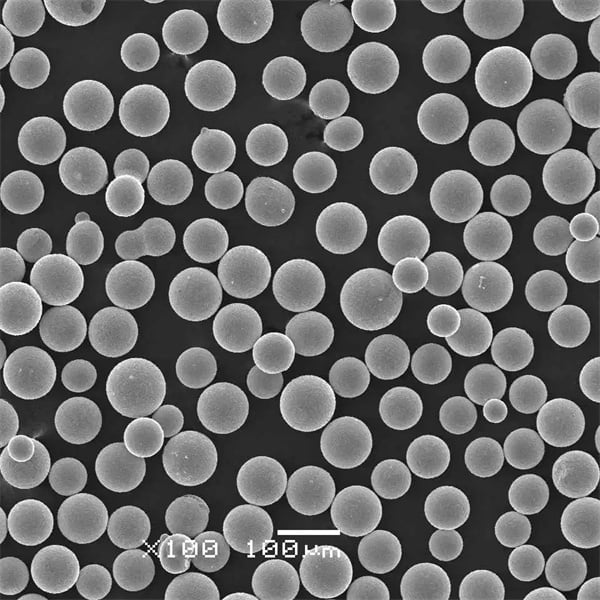
FAQ
| Question | Answer |
|---|---|
| What is niobium used for? | Niobium is used in aerospace, medical technology, electronics, energy, and optics due to its unique properties. |
| Why is niobium expensive? | Niobium’s rarity and complex extraction process contribute to its high cost. |
| Is niobium safe for medical use? | Yes, niobium is biocompatible and non-toxic, making it safe for medical implants and devices. |
| What are the superconducting properties of niobium? | Certain niobium alloys, like NbTi, exhibit superconducting properties, crucial for MRI machines and particle accelerators. |
| Where is niobium primarily found? | Niobium is primarily found in Brazil and Canada, often extracted from the mineral pyrochlore. |
| Can niobium be alloyed with other metals? | Yes, niobium can be alloyed with metals like titanium, tungsten, and aluminum to enhance its properties. |
Share On
MET3DP Technology Co., LTD is a leading provider of additive manufacturing solutions headquartered in Qingdao, China. Our company specializes in 3D printing equipment and high-performance metal powders for industrial applications.
Inquiry to get best price and customized Solution for your business!
Related Articles
About Met3DP
Recent Update
Our Product
CONTACT US
Any questions? Send us message now! We’ll serve your request with a whole team after receiving your message.

Metal Powders for 3D Printing and Additive Manufacturing
COMPANY
PRODUCT
cONTACT INFO
- Qingdao City, Shandong, China
- [email protected]
- [email protected]
- +86 19116340731






